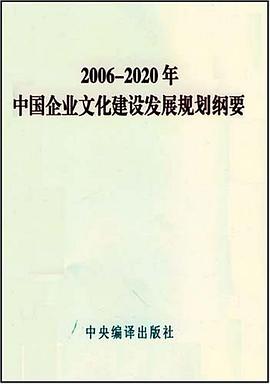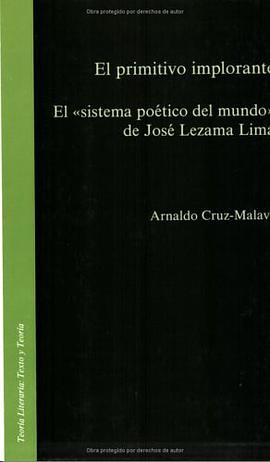

具体描述
In this inventive book, Peter Fritzsche explores how Europeans and Americans saw themselves in the drama of history, how they took possession of a past thought to be slipping away, and how they generated countless stories about the sorrowful, eventful paths they chose to follow. In the aftermath of the French Revolution, contemporaries saw themselves as occupants of an utterly new period. Increasingly disconnected from an irretrievable past, worried about an unknown and dangerous future, they described themselves as indisputably modern. To be cast in the new time of the nineteenth century was to recognise the weird shapes of historical change, to see landscapes scattered with ruins, and to mourn the remains of a bygone era. Tracing the scars of history, writers and painters, revolutionaries and exiles, soldiers and widows, and ordinary home dwellers took a passionate, even flamboyant, interest in the past. They argued politics, wrote diaries, devoured memoirs, and collected antiques, all the time charting their private paths against the tremors of public life. These nostalgic histories take place on battlefields trampled by Napoleon, along bucolic English hedges, against the fairytale silhouettes of the Grimms' beloved Germany, and in the newly constructed parlours of America's western territories. This eloquent book takes a surprising, completely original look at the modern age: our possessions, our heritage, and our newly considered selves.
作者简介
目录信息
读后感
评分
评分
评分
评分
用户评价
我喜欢那些能够触及灵魂深处,引发深刻思考的书籍。从这本书的名字来看,它似乎触及了一个非常普遍,但又常常被我们忽略的议题:活在当下,却又被过往所束缚。我猜测,这本书可能会通过一个引人入胜的故事,来探讨现代社会中,人们普遍存在的“滞后感”——我们可能生活在21世纪,但思维方式、情感模式,甚至一些行为习惯,却依然停留在过去某个时刻。也许主人公就是一个活生生的例子,他可能有着超前的技术能力,却无法适应当下的人际关系;或者他拥有丰富的知识,却在面对新事物时显得格格不入。我期待作者能够用细腻的笔触,描绘出这种“卡在当下”的微妙感受,那些无法释怀的过去,那些渴望却又遥不可及的未来,以及在这两者之间,人物所经历的内心煎熬。这本书或许会让我们重新审视自己的生活,思考我们是否真正地“活在”我们所处的时代,还是被无形的力量拽回了过去。
评分读这本书的名字,我就联想到一些科幻小说中的经典桥段,比如时间旅行者被困在某个时代,或者因为失忆而无法找回自己的身份。但“Stranded in the Present”这个名字又带有一点特别的意味,它并非指向遥远的过去或未来,而是“现在”。这让我产生了一个更具哲学性的联想:也许“现在”本身,也可能成为一个“囚笼”。我好奇,作者会如何构建这个“现在”的场景?它会是一个充满科技奇迹的未来都市,还是一个充满复古气息的怀旧之地?更重要的是,是什么让主人公“滞留”在这个“现在”?是因为外部的不可抗力,还是他内心的选择?我期待看到作者如何将这种“滞留”的状态,转化为跌宕起伏的情节,以及在这种环境中,主人公如何与周围的世界发生碰撞。这本书的名字,就像一个谜语,勾起了我强烈的探索欲望,想要去揭开它背后的故事。
评分我总会被那些名字中带有强烈情绪和暗示的书籍所吸引,而《Stranded in the Present》无疑就是这样一本。它给我的第一印象,并非是传统的叙事,而是一种沉甸甸的,带着些许宿命感的体验。想象一个角色,被剥夺了回溯过去,或者展望未来的能力,只能活生生地“搁浅”在眼前的“当下”。这是一种多么令人不安的状态?我好奇,作者会如何塑造这位“滞留者”?他的内心世界会是怎样的?是充满了对逝去时光的眷恋,还是对未知未来的恐惧?抑或是,在无法摆脱的“现在”中,他会找到一种别样的生存之道?这本书的名字,让我脑海中浮现出无数种可能性,关于遗忘、关于铭记、关于接受,以及在一种无法改变的现实中,人类如何寻找意义和慰藉。我期待,它能带给我一次关于“当下”的深度思考,一次对存在本身的温柔叩问。
评分一直以来,我都对那些探讨“存在”与“失落”主题的作品充满了兴趣。这本书的名字,"Stranded in the Present",恰好精准地捕捉了这种情绪。“Stranded”(搁浅,滞留)这个词,本身就充满了被困住的无力感,而“in the Present”(在当下)则将这种无力感锁定在了我们最熟悉,也最常被我们忽视的时刻。我一直在思考,在快节奏的现代生活中,有多少人觉得自己像是被困在了某个时间节点上,无法前进,也无法后退?这本书会是一个关于“卡住”的故事吗?也许主人公经历了某种巨大的创伤,导致他无法真正融入当下的生活,他的思绪和情感,都停留在过去某个难以忘怀的时刻。我期待作者能够用一种深刻而富有洞察力的方式,去描绘这种“精神滞留”的体验,那些内心深处的纠结,那些无声的呐喊,以及主人公在与这个“现在”的格格不入中,所产生的种种矛盾和冲突。
评分这本书的封面,带着一种莫名的吸引力,深邃的蓝色背景,上面是模糊不清的城市剪影,似乎暗示着某种失落感和迷茫。我一直对那些探讨时间、记忆和身份认同的作品情有独钟,所以当我在书店里瞥见它的时候,就立刻被它所散发出的神秘气息所吸引。想象着一个角色,可能因为某种不可思议的原因,被抛入了一个完全陌生的时代,而他所熟悉的过去,却又像潮水般涌来,不断地冲刷着他现在的生活。我好奇,他会如何应对这种巨大的落差?是奋力挣扎,试图找回自己失去的一切,还是被动地接受,在这个新的现实中寻找生存的意义?书中描绘的“Stranded”这个词,本身就充满了戏剧张力,它不仅仅是地理上的迷失,更是一种精神上的孤立无援。我期待着作者能够深入刻画主人公内心的挣扎,那些关于归属感、关于爱、关于失去的思绪,能够通过文字,在我眼前活灵活现地展现出来。
评分 评分 评分 评分 评分相关图书
本站所有内容均为互联网搜索引擎提供的公开搜索信息,本站不存储任何数据与内容,任何内容与数据均与本站无关,如有需要请联系相关搜索引擎包括但不限于百度,google,bing,sogou 等
© 2026 book.wenda123.org All Rights Reserved. 图书目录大全 版权所有



















